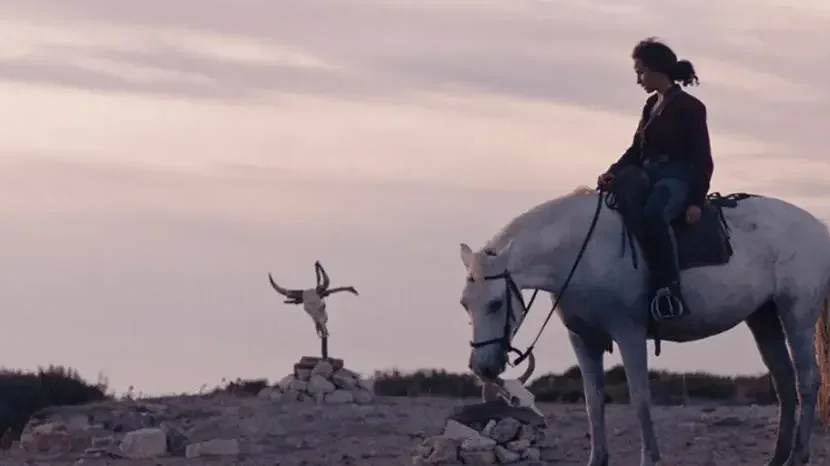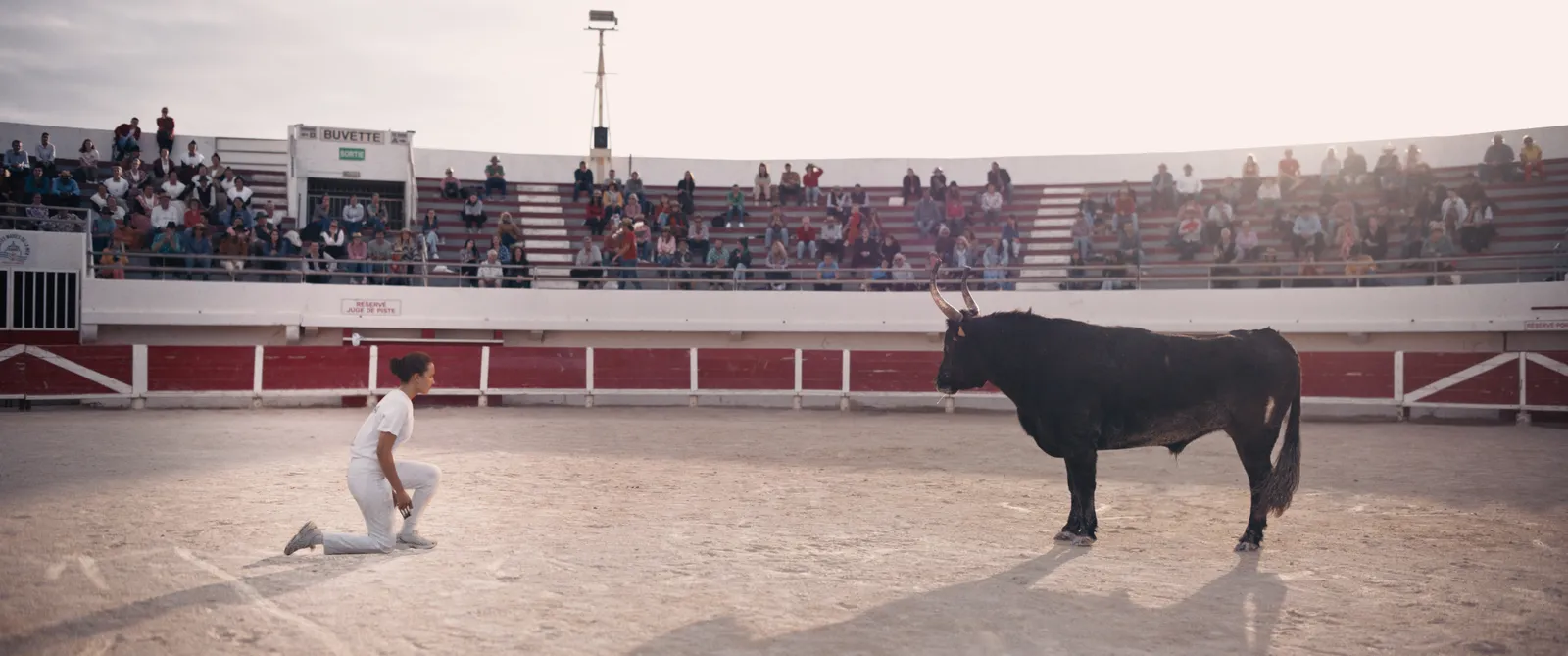ANIMALE: The Raging Bull of Camargue [REVIEW]

Emma Benestan’s film “Animale”, which closed the “Semaine de la critique” (“Critics’ Week”) section at the Cannes Film Festival, was chosen to open the Splat!FilmFest in Warsaw and Wrocław. This provides a greater chance for it to be noticed. The film deserves particular attention for its simple yet clever use of genre cinema and animal themes to tell a story about overcoming societal limitations, fighting for acceptance in a world where gender roles in culture, sports, and relationships are clearly defined. It is also a film about ambition unleashing a primal beast within, which allowed the director to introduce elements of body horror in the style of a classic werewolf tale, with a bull replacing the wolf.
The main character is Nejma Chokri (played by Oulaya Amamra), who is training for the “course camarguaise”, a popular sport in the Camargue region of southern France where competitors chase a bull to snatch a ribbon, rosette, or other material attached to its horn. Provencal cowboys, known as “gardians”, raise bulls on ranches, providing them with care and preparing them for the sport, where their opponents in the arena are competitors called “raseteurs”. Unlike the Spanish corrida, this sport is non-violent toward animals—the competitors must demonstrate not only courage but also skill and agility. The bull’s immense strength has traditionally meant that only men compete in this sport, seeing it as a test of strength and bravery that earns respect in the local community.

For Nejma, however, it means something more—breaking through barriers imposed by tradition, overcoming gender stereotypes, and unleashing an inner strength long suppressed by social expectations. The traditionally male-dominated sport allows her to confront deeply rooted chauvinistic beliefs about what a woman should pursue. In the arena, Nejma can finally take control of her own life—but, in keeping with the rules of body horror, this transformation has side effects. The inner strength unleashed by this sport not only fortifies her character and psyche but also frees a true beast within. Soon, the first victims appear, with torn human bodies for which the bull is suspected. The animal has the power to inflict such damage and the opportunity, living among humans in a semi-wild, semi-civilized environment. The problem is that Camargue bulls are not killers, and such events have never happened before. Nejma begins to suspect something is amiss and notices changes on her own body, as if her attempt to control the bulls has somehow led her to take on their physical traits.
In recent years, young female directors have found success in body horror, though there aren’t many examples, and those that exist are significant for contemporary cinema. Films like “Titane” (2021) by Julia Ducournau and “Substance” (2024) by Coralie Fargeat, also by Frenchwomen, come to mind. Many reviews highlight that Emma Benestan’s “Animale” continues this trend—combining a female perspective with a strong horror visual language that particularly resonates with male audiences. Yet, this film differs from the titles mentioned above. It is far more subdued, with a calm atmosphere and a minimal number of gore scenes. This restraint may make the story seem overly predictable, which is its most serious flaw. However, it compensates for this with other strengths, making it an undoubtedly successful and recommendable work.

The film’s advantages include bringing attention to the Camargue region and its traditions, culture, sporting heritage, and respect for great animals. Belgian cinematographer Ruben Impens, who previously collaborated with Julia Ducournau (“Raw”, “Titane”), focuses more on portraying the surrounding Nature than in other films. This is closely linked to the work of the Provencal cowboys with horses and bulls, visually steering the film toward a western style. Alongside epic shots of the southern French landscape, there are also interesting artistic frames based on impressive close-ups. For instance, one promotional shot shows the main character reflected in an animal’s eye.
While “Animale”, directed by Emma Benestan, has a feminist touch, it is more a reflection on human and animal nature without a strict gender divide. The filmmaker skillfully draws on horror genre conventions to explore fears associated with losing control over one’s body and the merging of animal instincts with human sensitivity. Through Nejma’s character (convincingly portrayed by Oulaya Amamra), the film examines the struggle of an individual confronting their own weaknesses and duality. Facing the primal wild force represented by the Camargue bulls, the protagonist grapples with an inner animal that defies control. The film is crafted with enough finesse to engage viewers, providing them with a dose of emotion and reflection. However, it does not overwhelm, as the opening of the Splat!FilmFest aims to set the right tone and prepare the audience for the festival’s upcoming attractions.

